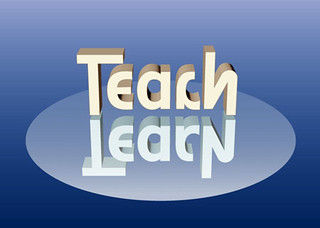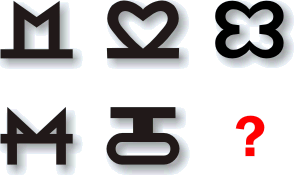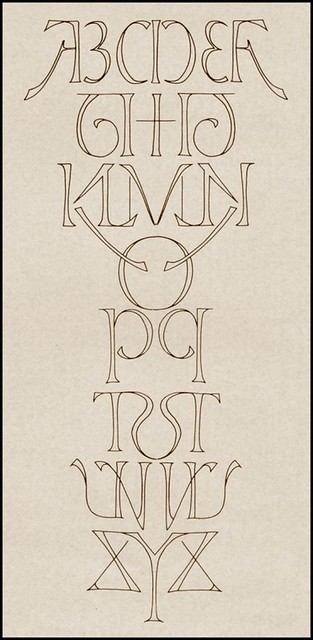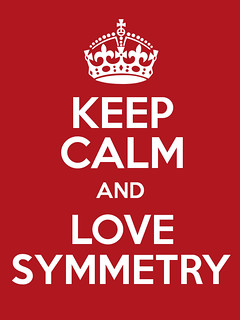Make math mistakes in public!

Looking at many polished photos of other people’s gorgeous vacations leads to depression, as Jessica Winter summarizes in Selfie-Loathing. What happens when students keep looking at perfectly solved problems, smooth proofs of theorems, and flawless geometric constructions? They get math anxiety!
In his public service announcement, “Don’t learn the solutions before class!” and in the comments, Gordon Hamilton explains how teachers’ mistakes help students.
Teachers should be the same species as their students. Too often we have teachers who want to know all of the solutions of problems before the class begins. This is setting them up to be birds teaching bats. The students are flying blind. Learning the solutions puts you in a less favorable space to teach your students. Set up a classroom where the stigma of failure has been removed. The best way to do that is to start with yourself.

Posamentier and Lehmann make another point in their new book: mistakes can lead to new insights and discoveries. It works for professional mathematicians and for young kids making their first steps in math. Here is a part of the introduction:
We can also consider how the “proof” that 1 = 0 leads us to a most important mathematical concept: that division by zero is not permissible. Follow along as we show this interesting little “proof.” We begin with our given information that x = 0. We then multiply both sides of this equation by x – 1 to get x(x – 1) = 0. Now dividing both sides by x leaves us with x – 1 = 0, which in turn tells us that x = 1. However, we began with x = 0. Therefore, 1 must equal 0. Absurd! Our procedure was correct. So why did we end up with an absurd result? Yes, we divided by zero when we divided both sides of the equation by x. Division by zero is not permitted in mathematics, as it will lead us to silly conclusions. This is just one of many such entertaining mistakes that give us a more genuine understanding of the rules of mathematics.
These examples may seem entertaining, and they are. Yet through these entertaining illustrations of mistakes a lot is to be learned about mathematical rules and concepts. For example, when we “prove” that every triangle is isosceles, we are violating a concept not even known to Euclid – that of betweenness. When we show that the sum of the lengths of two legs of a right triangle is equal to the length of the hypotenuse – clearly violating the time-honored Pythagorean theorem – we will be showing a misuse of the concept of infinity. Yet, it is the unique value of these mistakes – providing a better understanding of the basic concepts of mathematics – that makes these mistakes magnificent. Lest we forget, youngsters – and we dare say, adults as well – learn quite a bit from mistakes. We expect that through the playful style in which we present these mistakes the reader will be delightfully informed! We shall also compare mathematical mistakes with those in everyday life and notice what can be learned from these.
We expect that the readers will enjoy these examples, and during this delightful excursion they should appreciate the many aspects or nuances of mathematics that sometimes go unnoticed until they lead one astray. We invite you now to begin your journey through these many magnificent mistakes in mathematics.
Do show your students imperfect, human, live math! Celebrate their mistakes by exploring the possibilities together. You can also rejoice in what students don’t know, as XKCD illustrates. Learning is exciting. But before you learn, you need to – not know!
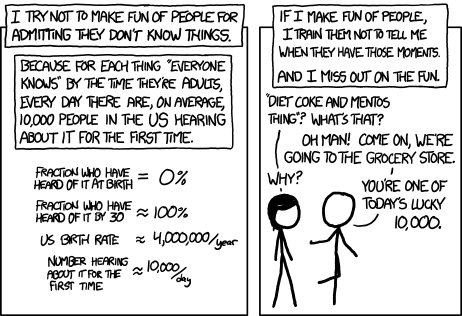
Captain Sheridan of Babylon V (a sci-fi series) gives his signature good-luck speech whenever he assumes command. The speech has some of the most important lessons he learned in his life:
When I was 21, I visited Tibet. I went to see the new Dalai Lama. Uh, you do that sort of thing when you’re 21 and the son of a diplomatic envoy. We had a simple dinner. Rice, raisins, carrots—steamed, not boiled—and green tea. When it was over, he looked at me and said, “Do you understand?” I said no, I didn’t. “Good beginning,” he said. “You’ll be even better when you begin to understand what you do not understand.”
One of my favorite math exercises is to invite students to make as many mistakes in a problem as they possibly can. Can you make ridiculous mistakes? Funny mistakes? Big huge mistakes? Subtle mistakes that are hard to notice? This exercise and the math discussions it starts is worth a stack of worksheets for how much math students learn. Making mistakes on purpose also helps students laugh, relax, and carry on their challenging math journeys.
Posted in Grow
The last mpsMOOC13 Observer: Thanks and lessons learned
Read past issues | Visit the course page | Follow Moebius Noodles on Facebook
Time flies when you do math! Our open online course Problem Solving for the Young, the Very Young and the Young at Heart is almost over. This is the final issue of the course newsletter.
Thank you!
To everyone who signed up: thank you! When we planned this course, we thought we’d have a dozen families and groups. We got seven times as many! Which tells us there is a need and a desire for this sort of math.
To everyone who did at least one task: THANK YOU VERY MUCH! We got great stories for the book, and good data for the citizen science project (see Lessons Learned section below). The best part: the course invited many kids all around the world to try a Math Circle experience with parents and friends!
What’s next?
Now that you’ve tried mathematical problem solving with your children, will you continue? If yes, we would love to support you. Here’s what you can do:
- Ask questions and share your experiences on our Ask platform. It is open to you and every question gets an answer!
- Schedule a live Q&A session for your group of friends or a Math Circle. Contact us to arrange date/time.
- Write to us at moby@moebiusnoodles.com to let us know how we can help you.
- Sign up for the next open mini-course with us. We will run it in a few weeks. The details of the course and other such news will appear in our regular Moebius Noodles newsletter, which the course participants will receive twice a month.
- Continue running Math Circles. The National Association of Math Circles grants $2000 to support new Circles in the US. The application form is just a couple of pages – very doable! The deadlines are September 1 and February 1: https://www.mathcircles.org/content/math-circle-grants
If you are wondering what’s next for us, we will continue working on the draft of the Problem Solving book. We will write regular updates about our progress.
Now for some Lessons Learned. We would love to hear yours!

Lessons learned: on running courses like this
- The beginning voice conversation (initial interview) helps to share math values and to get to know one another. But video processing and scheduling is about ten times more work than we expected. We will use different software; do it in groups; and meet after participants have looked at the first assignments, to answer questions.
- We need smaller assignments, and fewer. For our next course, we’re thinking of one problem per week, not three “do it” problems plus three “plan it” problems.
- Participants wanted more discussions and collaboration. We need more tools and assignments for social mixing.
- Many people asked for live group events. We’ll have that in the future.
- We need to provide optional know-how (reading, videos) on getting started and addressing typical difficulties. Several people in this course made handouts, which we will include in the book and adapt for future courses.

Lessons learned: citizen science study pilot
There is a lot of education research on some of these items, such as the use of symbol and signs. Why do we want more studies? Because the context matters. We need to see how things work in the context of small groups and families. That context isn’t studied much at all.
- Data collection worked. We got a good preliminary data set on dimensions of adaptation. We need more scaffolding to invite people for data analysis.
- Toys and manipulatives help young or hesitant students to get started, and add diversion and width to the experience. Toys easily lead kids into open exploration or free play (which may be good), and away from goal-oriented activities (which may be bad). Using whole bodies to physically enact the problem works differently from using just toys.
- Stories, in words or visuals, make or break problems for a significant number of kids. Some people had recurring characters, settings, and themes in their stories, which helps to focus on math (since the context is already familiar).
- Computer tools seem to be more generic, in that they don’t require problem adaptation or preparation as much as physical manipulatives. This is different from using topic-specific computer games, such as Free Flow (spatial connections) or DragonBox (equations).
- Many people reported kids getting frustrated, and then dealing with frustrations, or taking a break. Causes and remedies need more study.
- We need some scaffolds and advice on how to collect data. For example, running a Math Circle with more than a couple of young kids and taking pictures or notes takes two people, not one.
- “It’s funny how our meeting turned into math club for the parents by the end!” And: “Are they spectators or facilitators? If they are to help, how might they do so? Do all parents need to be on board with the lesson plan and goals?” One type of adaptation is to focus on parents and their interests. For example, working with math-phobic friends: “She confided that she had had nightmares the previous night about not being able to do the problems.”
- Symbols and signs (for example, for directions in the gear problem) is a big dimension of adaptation. So is helping kids come up with their own terms, and to use these unconventional terms consistently.
- The very fact of adapting problems bothers some kids as “cheating.” We need to address that, maybe by inviting kids to be citizen scientists too, instead of “just students.
- How do you make problems more open-ended? James Tanton has a lot of advice. So do all those kids who followed rabbit trails all over the place!
Thank you for promoting meaningful, beautiful, playful math! See you online!
Posted in Grow
Multiplication, homeschool conference, Kaprekar: Newsletter July 30, 2013
I am Moby Snoodles, and this is my newsletter. I love to hear from you at moby@moebiusnoodles.com

Next course: Wow, Multiplication!
We are working on designing a series of short high-energy courses for parents, Math Circle leaders, and other innovative educators. Our first such micro-course will be about multiplication. We will introduce two highly addictive, deep, mixed-age games that you can play for 10 seconds or 10 years. We will also have a course forum for discussions and hot questions that worry and excite, such as, “How come some mathematicians never memorized their times tables, and do kids have to?” or, “Is multiplication just repeated addition?” Let us know if you are interested!
Mathematical values, mastery, and flow transform children. The transformations are reflected in their faces. Check out the math faces from our previous course.

Homeschooling and democratic learning conference
Please join us in a free, online conference for independent learners, The Homeschool Conference (http://www.homeschoolconference.com/). It runs live on Aug. 23-24 and will then be available as free downloads. You can submit proposals until August 20th.

Blogs and networks
Our Facebook page has grown to 500 fans. Eric Hamilton pointed out that 500 is no more special than many other numbers, which inspired us to play a little game of math facts. As a result, the new fans got their own mini-cards with curious facts about their numbers. If you want a card like that about your number, let us know on Facebook.

Sharing
You are welcome to share the contents of this newsletter online or in print. You can also remix and tweak anything as you wish, as long as you share your creations on the same terms. Please credit MoebiusNoodles.com
More formally, we distribute all Moebius Noodles content under the Creative Commons Attribution-NonCommercial-ShareAlike license: CC BY-NC-SA
Talk to you again on August 15th!
Moby Snoodles, aka Dr. Maria Droujkova
Posted in Newsletter



